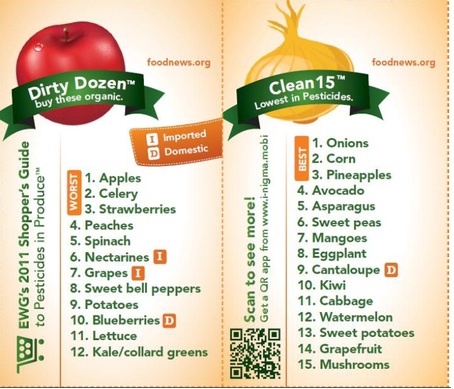Since the very nature of pesticides is to kill living organisms ("pests"), and humans are also considered living organisms, pesticides are toxic to us by their very definition. In particular, the health risks that pesticides confer have been validated by researchers and physicians internationally, as well as by US and international government agencies. Pesticides have been linked to many health conditions, such as:
- Brain and nervous system toxicity
- Cancer
- Hormone disruption
- Skin, eye and lung irritation
As an investment in our health and our future, a great first step is to be mindful of the produce we are consuming and to make educated choices about reducing our pesticide exposure. Making small changes such as this can make a big difference when it comes to our long-term health, and so I wish for you good health and happy eating!
--
Sources:
http://www.ewg.org/foodnews/


 RSS Feed
RSS Feed